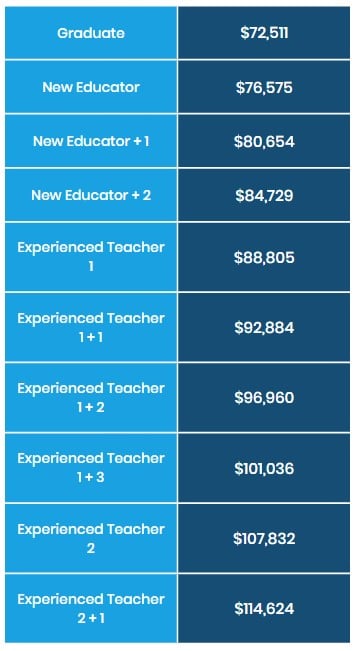What makes a great teacher? It’s a tricky question. Think about the few that stand out in your memory from school… do the best teachers make you laugh? Do they help you solve the mystery that is algebra after years of confusion? Ultimately, defining ‘quality teaching’ is quite difficult, namely because ‘quality’ is quite subjective. To tackle this conundrum, frameworks such as the Quality Teaching (QT) Framework are super helpful. So, what is the quality teaching framework, and how is it useful for teachers? Read on to find out how this framework can provide pathways for our professional development.
Teaching that Makes a Difference for Students
Some may argue that a ‘quality teacher’ is easy to define… we can simply go by learning outcomes – exam results! Our old friend, assessment data! Results are of course important markers, but does a set of test results paint a full picture of a year spent in the classroom? Does it tell us whether the students have developed a love for learning and an independent resilience to overcoming challenges that they can carry with them into the outside world? (i.e. from experiencing quality teaching.) Possibly not!
The QT Framework aims to outline a fuller picture; a holistic model where defined elements of quality teaching are identified and can be discussed. The elements in the QT fall under the following categories:
- Curriculum Understanding
- Student Engagement
- Classroom Equity
- Assessment Practice
Increasingly, in professional development programmes, the QT framework is used as a framework to facilitate discussion around classroom best practices.

How do you define ‘quality teaching’?
Why is the QT framework a useful tool?
Studies show that quality teaching is the number one factor in improving student outcomes.
Sounds pretty obvious, right? Of course ‘quality teaching improves the learning progress of students.’ Even so, and as mentioned, defining what exactly we mean by quality teaching is problematic. Lack of clarity in this area can lead to assumptions about what quality teaching looks like. When unbacked by evidence, these assumptions can lead to teachers feeling unsupported, or as though they are never quite good enough.
The QT framework is a useful tool for teachers as it gives clearly defined categories that the quality of teaching can be evaluated against.
Receiving feedback following a teacher lesson observation
We know that teaching is one of those professions where there is always room for professional development and growth. That’s one of the many things that make it such a rewarding job!
However, we’ve probably all experienced a lesson observation where the feedback has left us feeling a little deflated. Where the observer’s notes are a little convoluted and confusing. e.g. “Lesson starter activity could be improved.” Wait, improved how? What strategies can I try to improve the learning outcomes of students here?
It is for this reason that frameworks like the Quality Teaching framework are used to support teachers to have a unified discussion about best classroom practice. The table below outlines the 18 elements that make up the QT framework.

The Department for Education support the use of the QT framework to inform all teaching and learning programmes
If the lesson feedback in the example above instead stated something like, ‘there was a lack of engagement from the students during the starter activity. I believe if you clearly demonstrate your high expectations that the activity is completed in the time and use explicit quality criteria so students know how to succeed then this will lead to significant improvements.’
Now, this gives you something concrete you can actually work with! OK, it’s not always nice to hear constructive criticism like this, but the QT framework fosters conversation between the teacher and observer. For example, questions may arise such as, ‘what quality criteria would work for this particular activity?’ ‘Which other members of staff in school consistently show they have high expectations?’ Conversely, ‘would this staff member be OK to have a drop-in during one of their starter activities to see how it’s done?’
Referencing the QT framework during teacher interviews
The QT framework is also useful when looking to interview for teaching jobs in Australia. One of the most common areas interviewers want to discuss is your teaching pedagogy. That is, your individual methods and approaches to teaching; your teaching style. This is especially important if your interview does not include a lesson observation or takes place over zoom. If the school can’t see you teach, they need to hear in detail how you teach.
Essentially, the last time you want to appear stumped in an interview is when asked, ‘what would we typically see if we walked into your lesson?’ or ‘tell us about your approach to lesson delivery.’
Using the QT framework as a reference point, you can construct a comprehensive answer about what makes you a high-quality teacher. The 18 elements can be used almost like a checklist for what to include in your answers.
Example answer: ‘If you walk into one of my lessons, you’re likely to find a busy and active learning environment. I have high expectations of my students to regularly use self and peer assessment to ensure they are editing and improving their work. I believe this student self-regulation is what helps shape them into successful, independent learners. Students don’t often come to me saying “I’ve finished.” They know how to check their work against the explicit quality criteria and make sure they’ve reached a final draft before asking for feedback.’
In summary, we’re big fans of the QT framework. It’s really useful for teachers as it:
- Provides a clear framework for what constitutes quality teaching.
- Enables discussion among teaching staff around learning.
- As the quality elements are recognised across schools, the framework can support teacher preparation for interview answers.
If you would like to learn more about the QT framework, we found this discussion paper very insightful!
Thanks for reading our post in answer to ‘what is the quality teaching frame?’ Is this a framework you would find useful? How does your school incorporate it into discussion and professional development? We’d love you to join the discussion with us.
If you are interested in a new teaching position we welcome you to reach out to the team or browse our latest vacancies. Alternatively, contact nz@prosperoteaching.co.nz or australia@prosperoteaching.com.au to let us know how we can help with your staffing needs.



